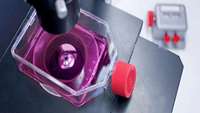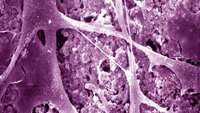Cartilage matrix as natural biomaterial for cartilage regeneration
Just a few millimeters thick, articular cartilage plays a crucial role in our musculoskeletal system, since it is responsible for smooth (in the truest sense of the word) movement. However, the downside of its particular structure is that even minor injuries do not regenerate.
Researchers discover placental stem cells that can regenerate heart after heart attack
Researchers at the Icahn School of Medicine at Mount Sinai have demonstrated that stem cells derived from the placenta known as Cdx2 cells can regenerate healthy heart cells after heart attacks in animal models.
Zolgensma®: gene therapy for spinal muscular atrophy approved for use in the UK
The National Institute for Health and Care Excellence (NICE; UK) has published draft guidelines on the use of onasemnogene abeparvovec (Zolgensma®) for the treatment of spinal muscular atrophy (SMA) in the NHS in England and Wales.
Scientists develop new gene therapy strategy to delay aging
Cellular senescence, a state of permanent growth arrest, has emerged as a hallmark and fundamental driver of organismal aging. It is regulated by both genetic and epigenetic factors.
Peeking inside 'mini-brains' could boost understanding of the human brain
'Mini-brains' are pin-head sized collections of several different types of human brain cell. They are used as a tool, allowing scientists to learn about how the brain develops, study disease and test new medicines.
Novel BafA protein shown to stimulate angiogenesis
Scientists from Fujita Health University (Aichi, Japan) have discovered a pro-angiogenic autotransporter released by bacteria of the genus Bartonella, which they have named Bartonella angiogenic factor A (BafA).












